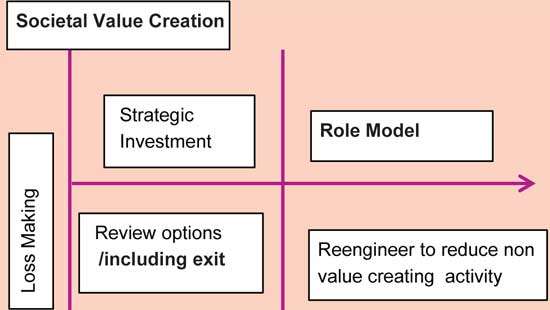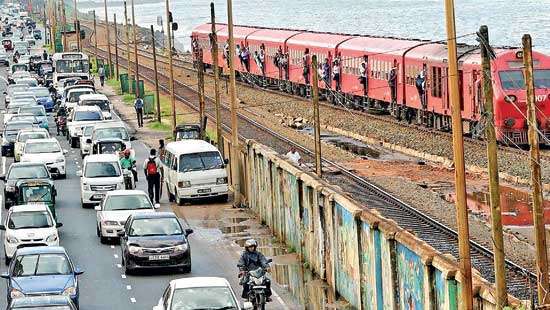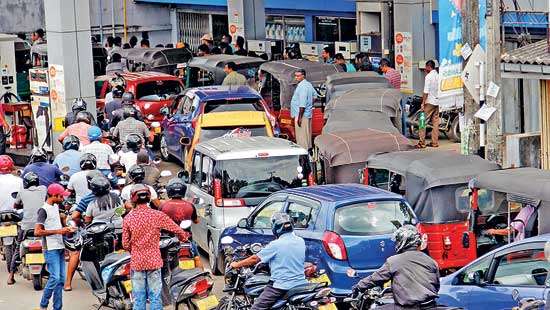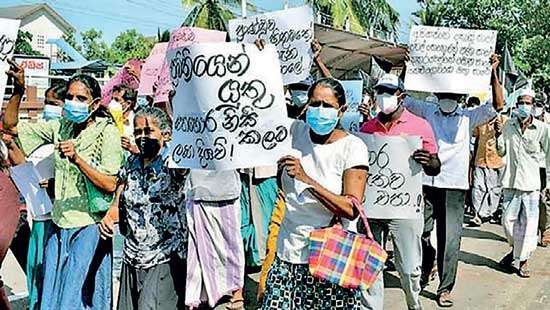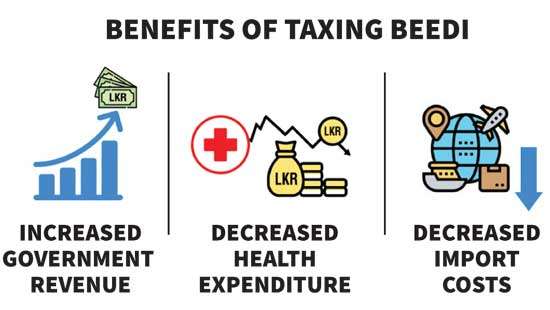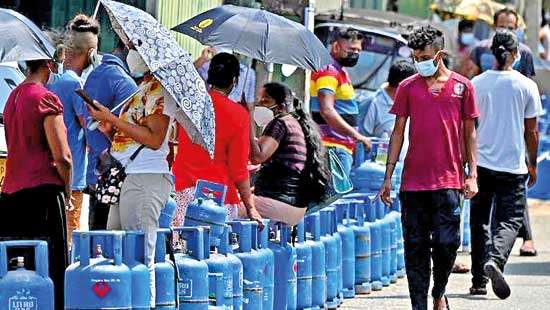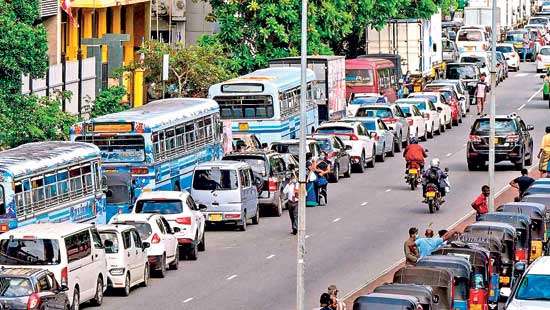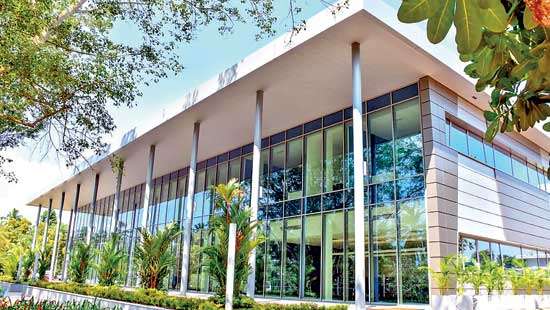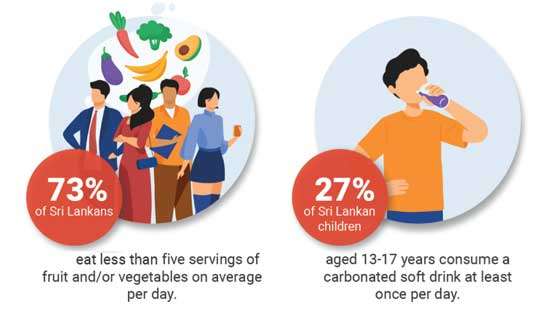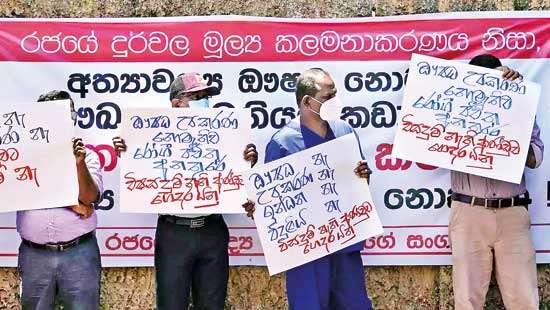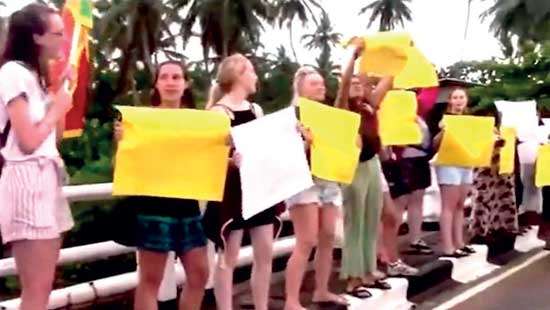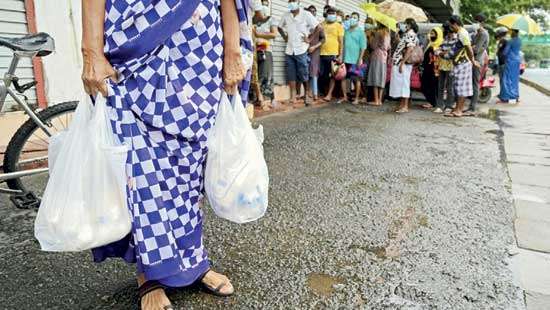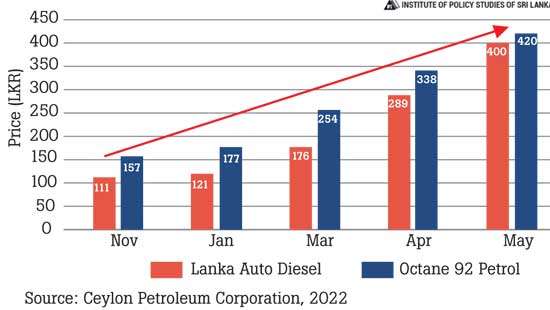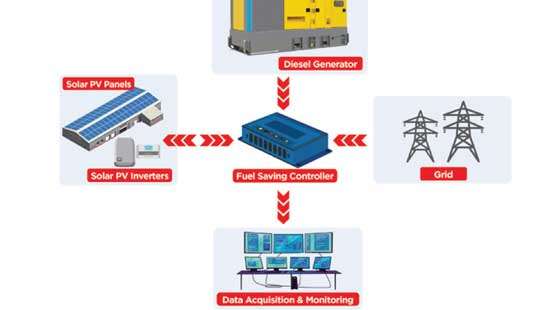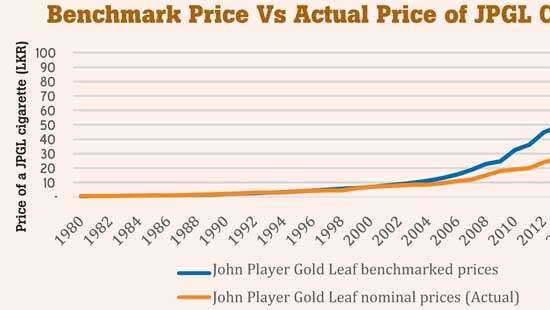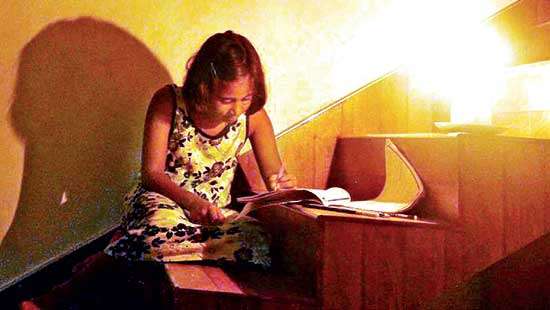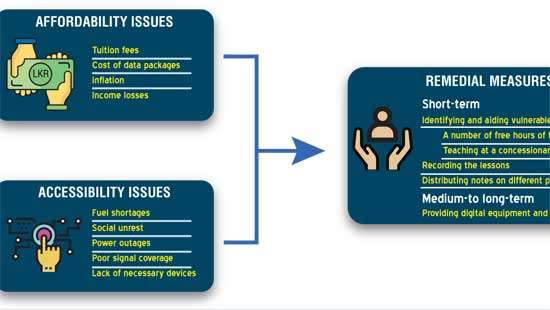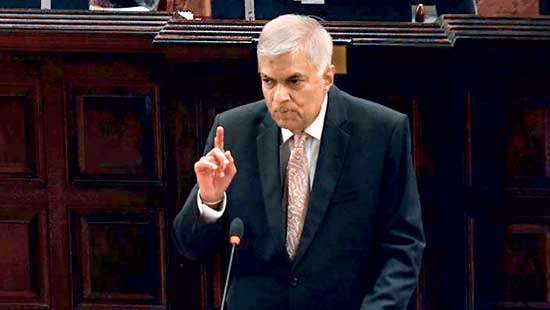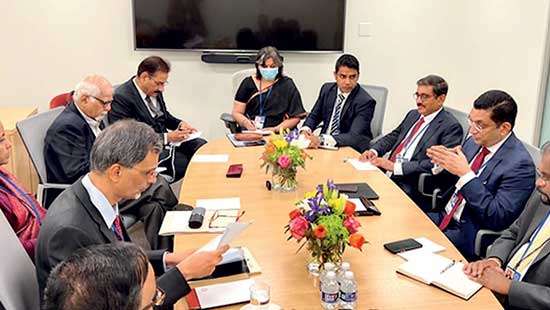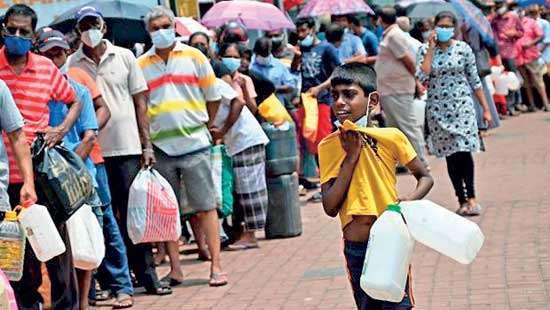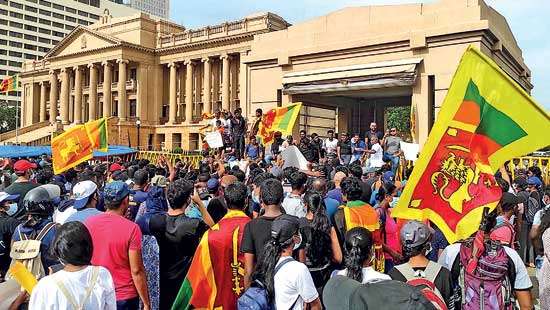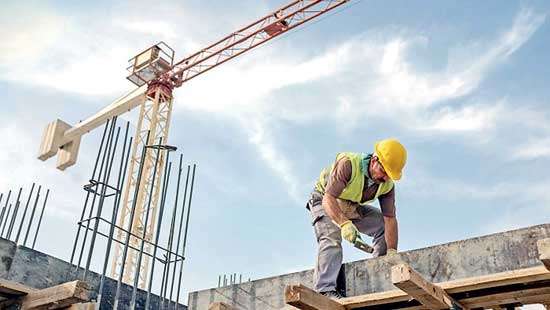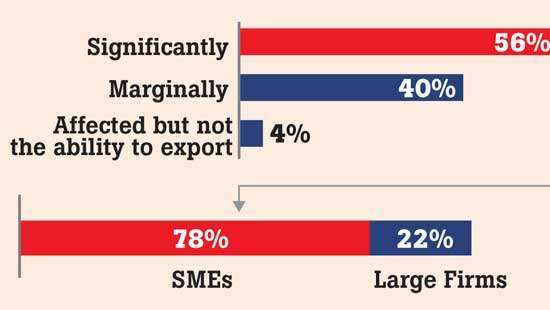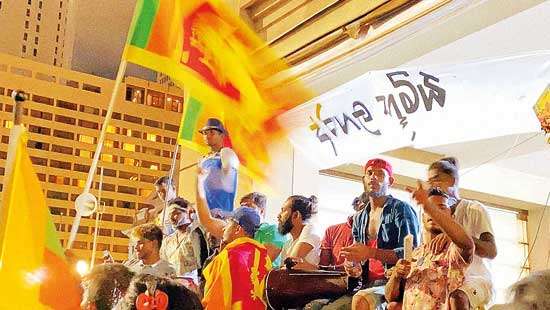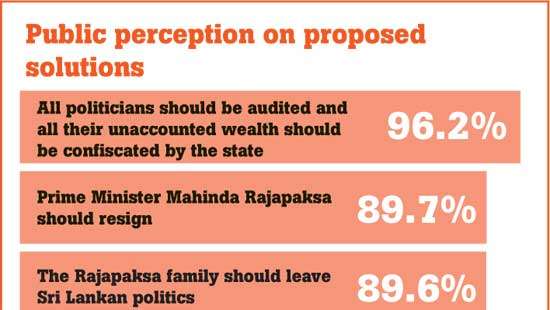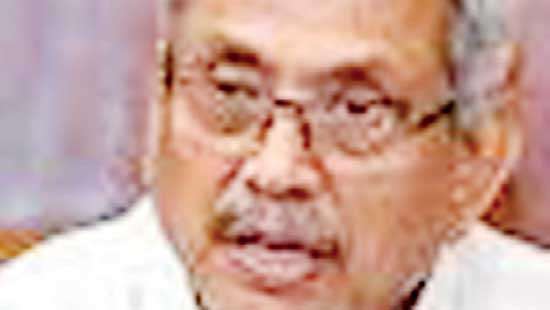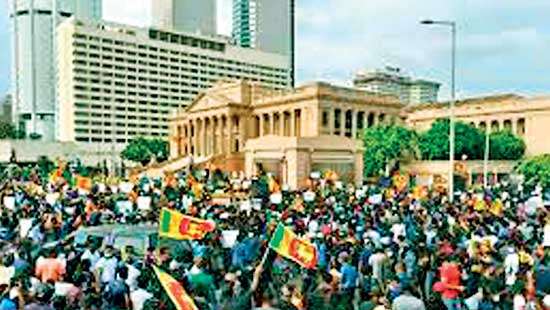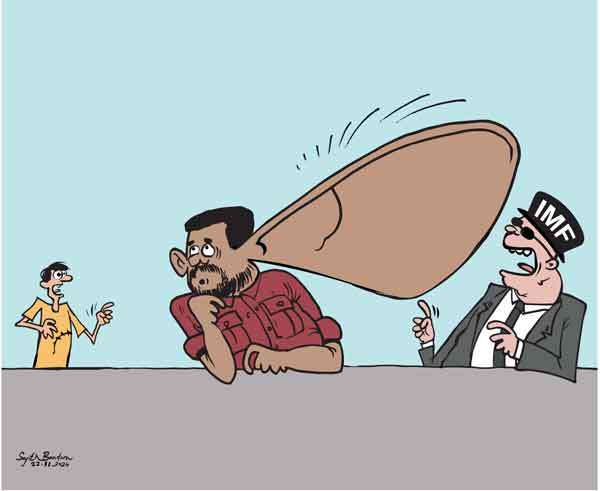Features
Sri Lanka has 50% more vehicles than we should!
24 Jun 2022
 1
1
Private motorisation has been Sri Lanka’s preferred mode to solve its mobility needs. Not much thought has been given to the public transport systems in recent times, which over the years were systematically neglected and relegated to the poor to use.
Beating ongoing fuel and energy crisis
24 Jun 2022
 0
0
The shortage of fuel and energy has brought the whole of Sri Lanka to a standstill and its citizenry of all walks to mile-long queues. It disrupts social movements, economic activities, business and production of all scales in all the sectors.
Strategy for restoration and rebuilding Sri Lanka’s agri-food sector
21 Jun 2022
 0
0
Sri Lanka’s economic crisis has caused immediate uncertainties regarding whether (a) required food supplies are and will be available, (b) the agri-food sector is and will be able to sustain the livelihoods of those engaged in crop, livestock and poultry farming, fishing, food manufacturing, food distribution and allied activities and (c) the agri-food sector is and will be able to provide food security for those most affected by the crisis.
Political economy of fiscal policies and regulations to promote healthy diets in Sri Lanka
13 Jun 2022
 0
0
The non-communicable diseases (NCDs) have posed a critical health challenge for Sri Lanka for several decades. Estimated to account for 83 percent of all deaths in Sri Lanka today, the NCDs have serious health and economic consequences for both individuals and the country.
Unlocking Sri Lankan government organisations
08 Jun 2022
 0
0
Digitalisation of government services is seen as a vital mechanism for cultivating public services, making the government more transparent and accountable, enlargement of public participation and facilitating the sharing of information among the public. The primary purpose of the government organisations is to provide services to the public.
Sri Lanka tourism – Catch 22 situation for government?
08 Jun 2022
 0
0
Sri Lanka tourism is yet again going through severe crisis. But this time the crisis is multifaceted and of unprecedented proportions. Many service providers are barely managing to survive, with several expected to ‘go under’ in the next few months.
Recommendations for urgent action from agripreneurial community to mitigate impending food crisis
06 Jun 2022
 0
0
There are constant dire warnings of impending food shortages citing many causes and blames on past actions. While it is useful and wise to be forewarned, the warnings alone will not avert the possible shortages. What is required is for those able and willing to engage in cultivation and other relevant activities, as best as possible using the available and deployable resources, instead of just lamenting and demanding inputs that may never come.
Global oil price volatility: How can Sri Lanka cope?
02 Jun 2022
 0
0
Global oil prices are in the headlines once again with crude oil prices soaring following Russia’s invasion of Ukraine on 24 February 2022. Global crude oil prices have shot up; the Brent increased by around 22 percent to US$ 114 a barrel at the end of May 2022, from a low of US$ 93 a barrel in early February 2022.
DIMO’s DI-Solar introduces way to utilise solar PV generated power during outages
02 Jun 2022
 0
0
DIMO recently introduced DI-Solar, a revolutionary solution, enabling the power generated through the existing solar PV systems to be utilised during the prevailing daytime power interruptions, thereby preventing the power wastage.
Power crisis: Policy overdose, institutional hegemony and lotus-eaters
25 May 2022
 0
0
In Greek mythology, the lotus-eaters were inhabitants of an island where the primary food was lotus fruits and flowers and was a narcotic causing them to sleep in peaceful apathy. The indulgence in pleasure keeps lotus-eaters away from dealing with practical concerns.
Gota Go Gama, One Galle Face and the country’s Youth
12 May 2022
 0
0
“Country is facing one of the most difficult and challenging economic, political and socially decisive times in its history …… Government has erred by banning use of chemical fertilizer and not going for a program with IMF earlier”…..These are not my words.
How can construction industry survive with present economic crisis?
10 May 2022
 0
0
The big question in the minds of many is for how long the local construction industry, which employs 650,000 workers direct and another 325,000 indirectly, could survive without a total collapse due to the multiple shocks it had to face during last 2 years.
SriLankan sets record straight on proposed leasing of new aircraft
04 May 2022
 0
0
SriLankan Airlines Ltd welcomes and respects the rich debate in the public space on matters concerning the operation of the airline in general and the ‘Notice of Procurement’ for the lease of aircraft in specific. The board and management are of the opinion that the discussion on these topics would benefit from more full information.
Organic fertiliser transition in Sri Lanka: Farmers were providing an early warning of a food shortage
29 Apr 2022
 0
0
On April 22, 2021, President Gotabaya Rajapaksa announced a ban on the importation of chemical fertiliser to make Sri Lanka “the first country in the world to be free of chemical fertiliser”. The decision was passed into law by a gazette published by the Finance Ministry on May 06, 2021.
Sri Lanka post-bankruptcy; impact on banks?
25 Apr 2022
 0
0
Sri Lanka technically became bankrupt when it announced a temporary suspension of repayment of all external debt of around US $ 50 billion, saying the country can no longer honour its commitment, owing to weak financial reserves caused by external and internal shocks.

Third review approved by IMF, SL to get next US$ 333 million tranche
25 Apr 2022
 0
0

Niloufer Esufally-Anverally Makes a Stylish Comeback with the Launch of NLFR
25 Apr 2022
 0
0

Global Entrepreneurship Week 2024 kicks off across all 25 districts
25 Apr 2022
 0
0

Fonterra to proceed with sale process for Consumer businesses
25 Apr 2022
 0
0

BOI signs US$ 12.16mn deal with Celogen Lanka
25 Apr 2022
 0
0

15-year-old schoolgirl impregnated, mother’s paramour arrested
25 Apr 2022
 0
0

United in art: Children collaborate to celebrate 35 years of CRC
25 Apr 2022
 0
0


